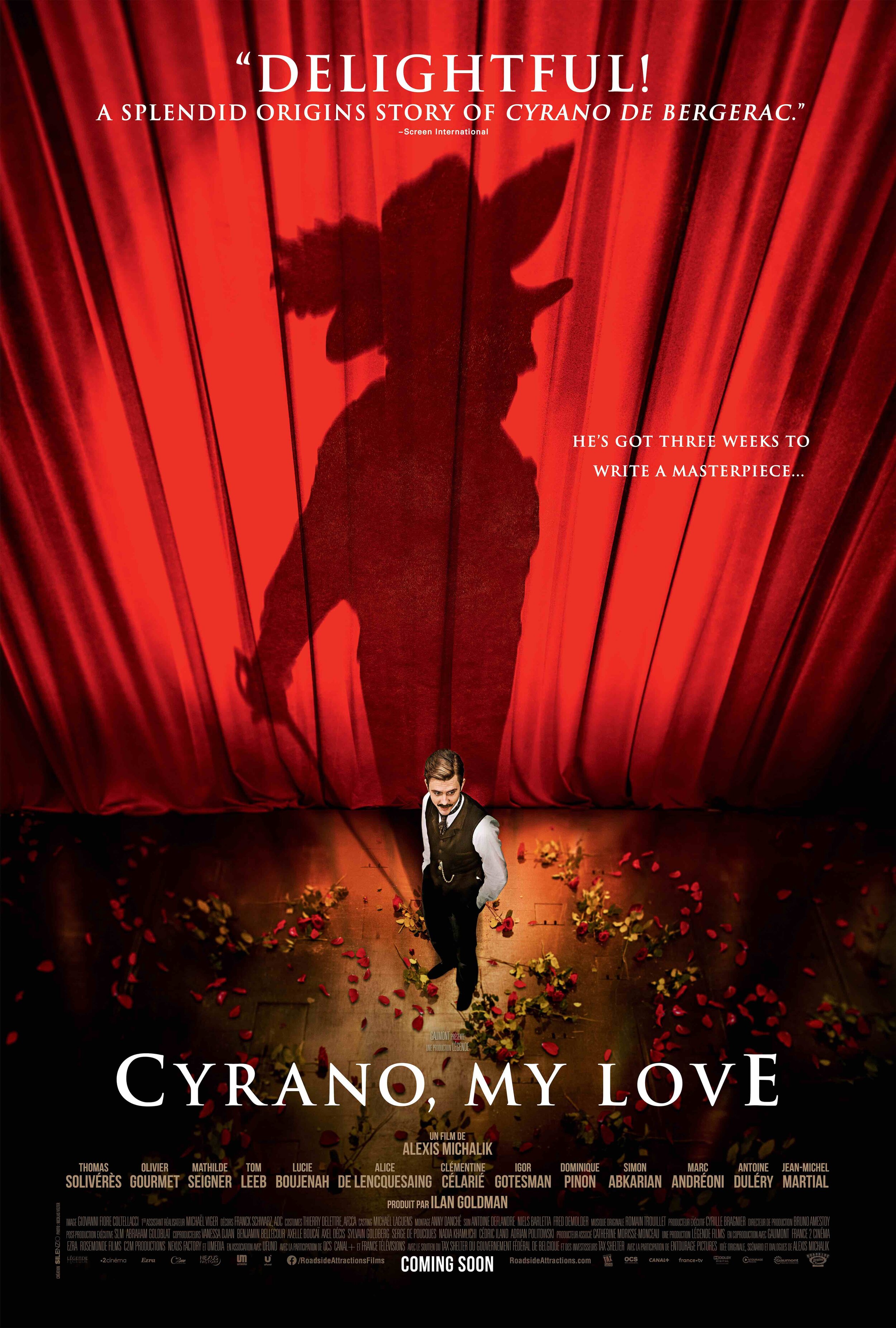Cyrano, Redux ... Encore
/
A Commentary & Review of the film, “Cyrano, My Love”
by John Bennison, Mountain Shadow Director
Christian: “You’re completely mad.”
Rostand: “Of course I am, I’m an author!”
Cyrano de Bergerac was a play written in five acts in 1897, by Edmond Rostand. The story was based on a real person, Cyrano de Bergerac, and the play was a fictional account of the real person, written entirely in verse. It is said that a full hour after the curtain fell after the first performance, the audience was still applauding.
There have been numerous adaptations and duplications of the original; including Edmond, the stage version written by the playwright Alexis Michalik; before he subsequently made the film version you’ll enjoy, Cyrano, My Love.
The original play – as well as all the subsequent variations -- is a drama, filled with comedic, romantic and tragic elements. In other words, it’s stagecraft, imitating life itself, where the lines between historical and fictional accounts only become blurred and limited by the author’s capacity to indulge in their own speculative imagination.
At one point during a rehearsal, one actor shouts to the others, “There’s too much smoke, too much noise, I’ll lose my voice before we open!”
Another replies, “But it’s war! How can we not have noise? Christian is dead, Roxanne is devastated. We’re going into battle!”
Another asks, “Where’s the comedy? An act is missing. Where’s the happy ending? It’s supposed to be a comedy!”
The playwright confesses, “It’s not written yet.”
How, Michalik wondered, did the struggling playwright, Rostand come to write one of the most famous, well-loved pieces of the French theater? The answer, the filmmaker deduces, lies in a standard plotline and motus operandi, both on and off stage: Just observe the world around you. Then take pen to paper, and make it up as you go. Ad lib, improvise, and fake it ‘till you make it. The results can be as consequential, comic, suspenseful, silly and serious as any adventure of the human heart and hand.
And so, in Cyrano, My Love there’s chivalry, jealousy, mistaken identities, buffoonery, slapstick mishaps, and – in the end, at last – profession of the heart.
During the holiday season, it’s an amusing way to spend an evening watching other characters play the roles in which we may have occasionally found ourselves. It’s a story where the beauty and the beast are one in the same person in every character. You may not be much of a swordsman, or have an overtly prominent, peninsular-shaped nez. But haven’t you ever longed to have the gilded tongue of a suave poet, who’s able to deliver one’s lines with panache?
A Spoiler Alert - If you don’t know how this story ends you might want to read
the remainder of this review after viewing the film.
In any of its reincarnations, Cyrano the play does not simply end as a French farce, of course. In the last scene, fourteen years have passed, and a mortally wounded Cyrano pays his last weekly visit to the beloved Roxanne; who’s now cloistered in a nunnery. She still clutches the poem written by her mysterious lover she mistakenly believes to have been lost to death so many years before. She asks Cyrano to read it aloud, and realizes he can recite the lines without even seeing them.
“My heart will never leave you.
I am and I will be, until the next world,
he who loves you without measure.”
Then Cyrano collapses, and with his final breath utters his own parting eulogy:
“Philosopher, physician, poet, swordsman, musician, aerial traveler, master of deadly repartee … lover, too. but no lover, he. Here lies Hercule Savinien de Cyrano de Bergerac, who was everything, who was nothing. but there is something I bear away … something I take with me. My panache.”






